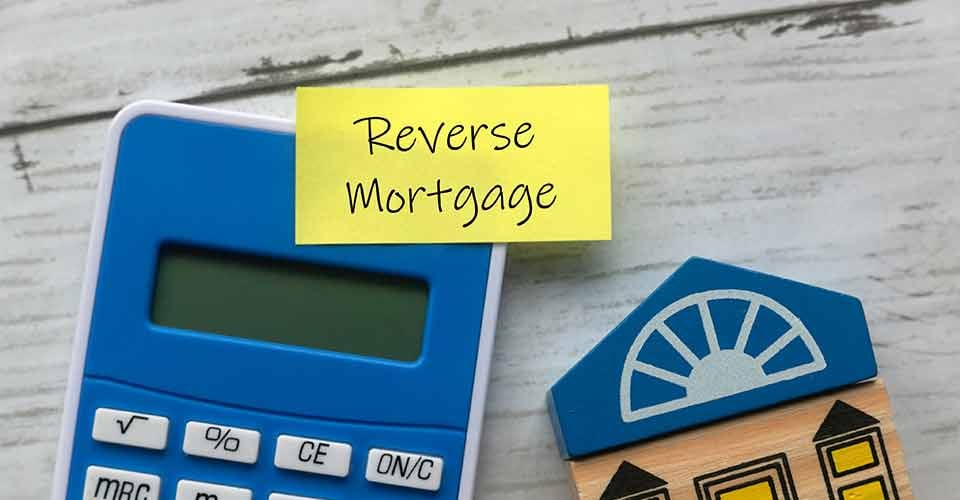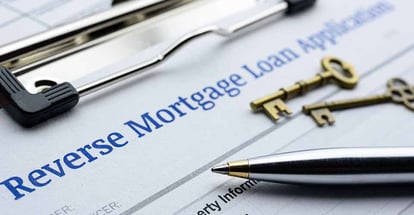What is a Reverse Mortgage: Explained in Simple Terms
A reverse mortgage is a type of loan available to seniors that allows them to borrow against the equity in their home without the need to make monthly mortgage payments.
The Home Equity Conversion Mortgage (HECM) is the most common type of reverse mortgage, which has been insured by the Federal Housing Administration since 1988.
The amount of funds available to seniors through a reverse mortgage is based on various factors such as the age of the youngest borrower, the value of the home, and current interest rates.
The funds received from a reverse mortgage are tax-free, and they can be used for a wide range of expenses such as medical bills, home repairs, or even vacations.
Seniors can choose to receive the funds in a lump sum, as monthly payments, as a line of credit, or a combination of these options.
Seniors must pay back the loan when the last surviving borrower dies or permanently leaves the home, or if they stop paying property taxes or homeowner's insurance. If the loan is repaid, any remaining equity will go to the borrower's heirs or beneficiaries, as specified in their will or trust.
Reverse mortgages are non-recourse loans, meaning that if the loan balance exceeds the value of the home at the time of maturity, no debt will be passed on to the borrowers' heirs. Instead, the lender will assume the loss.
Table of Contents
- How reverse mortgages are different from traditional loans
- How much are you eligible to receive
- How your age affects the amount available
- Reverse mortgage payment options
- How the line of credit growth rate works
- Lump sum restrictions
- Compare interest rates & closing costs
- Consider the costs vs. benefits
How reverse mortgages are different from traditional loans
A reverse mortgage is a unique type of loan that differs significantly from traditional or "forward" loans. The key difference is that a traditional loan is a falling debt, rising equity loan, whereas a reverse mortgage is a falling equity, rising debt loan.
In a traditional loan, the borrower makes regular payments, which reduce the amount owed over time. As the loan balance decreases, the borrower's equity in the property increases.
With a reverse mortgage, however, the borrower makes no regular payments. Instead, they can draw out funds as needed, and the interest on the loan accrues over time. As a result, the loan balance grows, and the borrower's equity position in the property becomes smaller.
One significant advantage of a reverse mortgage is that there is never a payment due, nor is there a prepayment penalty.
Borrowers can make payments at any time, up to and including payment in full, without penalty. This flexibility allows borrowers to manage their finances and pay down the loan balance if they choose to do so.
Some borrowers may choose to repay some or all of the accruing interest or any other amount they desire. Doing so can help reduce the overall balance of the loan, which can be beneficial in the long run.
However, it's essential to keep in mind that there is no requirement to make payments on a reverse mortgage, and borrowers can choose to use the funds as needed without worrying about repayment.
How much are you eligible to receive
If you're considering a reverse mortgage, one of the most important questions you may have is how much money you'll be eligible to receive. The amount you can receive generally ranges from 40-60% of your home's appraised value.
However, the actual amount you can receive depends on several factors, including your age, the value of your home, and current interest rates.
One of the most significant factors that dictate the loan amount is the age of the youngest borrower. The older you are, the more you can receive, as loan amounts are based primarily on your life expectancy and current interest rates.
Other factors that determine the loan amount include the value of the home or the 2023 lending limit, whichever is less, and the interest rates in effect at the time.
In addition to the above factors, several other factors can impact the loan amount. For instance, costs associated with obtaining the loan, such as appraisal fees, closing costs, and insurance premiums, are subtracted from the Principal Limit.
Moreover, any existing mortgages and liens on the property must be paid in full before the reverse mortgage is approved, and any remaining money after paying off the existing mortgages and liens belongs to you or your heirs.
It's important to keep in mind that the loan amount you receive may not be the same as the appraised value of your home.
Rather, it's based on a combination of factors that take into account your age, home value, and interest rates, as well as any costs associated with obtaining the loan and paying off any existing mortgages and liens.

How your age affects the amount available
Age is a critical factor that determines the amount of money you can receive from a reverse mortgage. To be eligible for a reverse mortgage, you must be at least 62 years of age.
The Principal Limit of the loan is primarily determined based on the age of the youngest borrower because the program uses actuarial tables to determine how long borrowers are likely to continue to accrue interest.
If there are multiple borrowers, the age of the youngest borrower will lower the amount available because the terms allow all borrowers to live in the home for the rest of their lives without having to make a payment.
This means that if you have a co-borrower who is much younger than you, the loan amount may be lower than what you would have received if you were the sole borrower.
However, there may be exceptions to this general rule. In some cases, a borrower who is older than 62 years may be eligible for a higher Principal Limit than a younger borrower with the same terms.
This is because, in general, an older borrower has a shorter life expectancy, which means they will accrue interest for a shorter period. Therefore, HUD allows borrowers who are older to start with a higher Principal Limit.
It's worth noting that the Principal Limit is not the final loan amount you will receive. Instead, it is the maximum amount you are eligible to borrow based on your age, the value of your home, and other factors.
The actual amount you can receive may be lower than the Principal Limit, depending on your specific circumstances.
Reverse mortgage payment options
When considering a reverse mortgage, borrowers in Florida have several options for receiving funds.
These include a cash lump sum at closing, a line of credit that can be drawn from as needed, a payment for a set amount and period known as a "term payment," and a guaranteed payment for life known as a "tenure payment" that lasts as long as you live in your home.
In addition, borrowers can use a modified version of each of these options and "blend" the programs to suit their unique financial needs.
For example, a married couple in Florida, born in 1955 and owning a $550,000 home, may decide to get a reverse mortgage.
The couple may wish to receive $100,000 at closing to pay off some high-interest debt and fund a home renovation project.
They may also want to increase their monthly income by $1,500 until they become eligible for Social Security benefits in two years.
To achieve this, they could opt for a modified term loan with a $100,000 draw at closing and set up a monthly payment of $1,500 for the next two years.
This would leave an additional $200,000 in a line of credit available as needed, which could also earn a guaranteed growth rate.
It's essential to note that the amount available for each option may vary based on the borrower's age, the value of their home, and current interest rates.
It's important to work with a reputable lender to determine the best option for your specific financial needs and goals.
How the line of credit growth rate works
In the past, reverse mortgages were often seen as a last resort, but now many borrowers are taking a proactive approach to their financial planning and considering this option.
For instance, a borrower who has sufficient income for their current needs but is worried about future expenses can benefit from a reverse mortgage.
By obtaining the loan, the borrower can secure a $200,000 line of credit, after accounting for any costs to obtain the loan.
What sets reverse mortgages apart from other forms of credit is that the borrower's line of credit will grow at the same rate as the interest and mortgage insurance premiums that would have accrued had they borrowed the money.
This means that over time, the borrower's credit line will increase, providing them with greater financial security in the future.
For example, after 10 years, the borrower's available credit could be as high as $350,000, after 15 years, it could be up to $500,000, and after 20 years, it could be as much as $660,000, assuming that interest rates remain the same.
However, if interest rates increase by 1% in the third year and another 1% in the seventh year, after 20 years, the borrower's line of credit could be more than $820,000.
It's important to remember that the line of credit is not income, and if the borrower chooses to borrow from it, they will owe the money with interest. The borrower or their heirs must pay back the loan when the property is sold.
Nonetheless, a reverse mortgage can be an attractive option for those who want to ensure they have a significant amount of available credit in the future.
It's difficult to find another financial product that provides such a substantial line of credit, making a reverse mortgage an appealing option for many borrowers.
Lump sum restrictions
The fixed-rate option of a reverse mortgage loan requires the borrower to take a lump sum draw of the total available funds at the loan's closing.
Unlike other options, such as the line of credit, the fixed-rate option does not allow for future draws, as the entire amount must be taken at once.
However, in the past, taking the full amount at once led to a high default rate on taxes and insurance payments, which caused concerns for the government agencies overseeing these loans.
As a result, HUD changed its policies to limit the amount of the Principal Limit available to borrowers at the close of the loan.
This change means that borrowers cannot access 100% of the Principal Limit at the loan's closing, and instead, the amount available will depend on various factors, such as the borrower's age and the appraised value of the property.
The idea is to ensure that borrowers have enough funds to meet their immediate needs while also protecting them from financial difficulties in the future.
Compare interest rates & closing costs
Reverse mortgage lenders are now more willing than ever to assist borrowers in paying costs associated with the loan.
In many cases, if there is an existing mortgage balance to pay off, there is room in the loan's value for the lender to recoup any money they spend on behalf of the borrower when they sell the loan.
Additionally, HUD allows for lender credits, so it's important to shop around and see what options are available.
Education is critical when it comes to choosing the right reverse mortgage for your needs. Understanding your goals will enable you to secure the best loan for you.
For example, if you're seeking the lowest margin possible, you'll accrue the least interest once you use the line. However, if you're looking for the most substantial line of credit growth, a higher margin grows at a higher rate.
While it may be tempting to opt for a loan with the lowest fees, this may not be the best decision in the long run. If you plan to stay in your home for 20 years or more, a loan with a low margin could end up costing you tens of thousands of dollars in interest.
Therefore, it's crucial to know precisely what you want from your reverse mortgage so that you can choose the best option to meet your short- and long-term goals.
Consider the costs vs. benefits
As you consider a reverse mortgage, it's important to keep in mind that this may not be the right choice for everyone. If the loan doesn't meet your needs and you'll still struggle financially, it's essential to face that fact before tapping into your equity.
If the reverse mortgage doesn't make your life easier and you'll have to sell your home in just a few years, it may be worth considering selling before you begin to erode your equity. Remember, the next move becomes that much more difficult once you've used up your equity.
The reverse mortgage is designed to be the last loan you'll ever need. If you know that you're not in your forever home, it's worth considering using your reverse mortgage to buy the right house instead of using it as a temporary solution that isn't really a solution at all.
Most borrowers can benefit from a reverse mortgage, but it's important to research and plan carefully to make sure this option is the right one for you.
Make sure you understand how these loans work, consider your plans for the future, and choose the option that best aligns with your goals.
With over 50 years of mortgage industry experience, we are here to help you achieve the American dream of owning a home. We strive to provide the best education before, during, and after you buy a home. Our advice is based on experience with Phil Ganz and Team closing over One billion dollars and helping countless families.

About Author - Phil Ganz
Phil Ganz has over 20+ years of experience in the residential financing space. With over a billion dollars of funded loans, Phil helps homebuyers configure the perfect mortgage plan. Whether it's your first home, a complex multiple-property purchase, or anything in between, Phil has the experience to help you achieve your goals.


 By
By  Edited by
Edited by 






